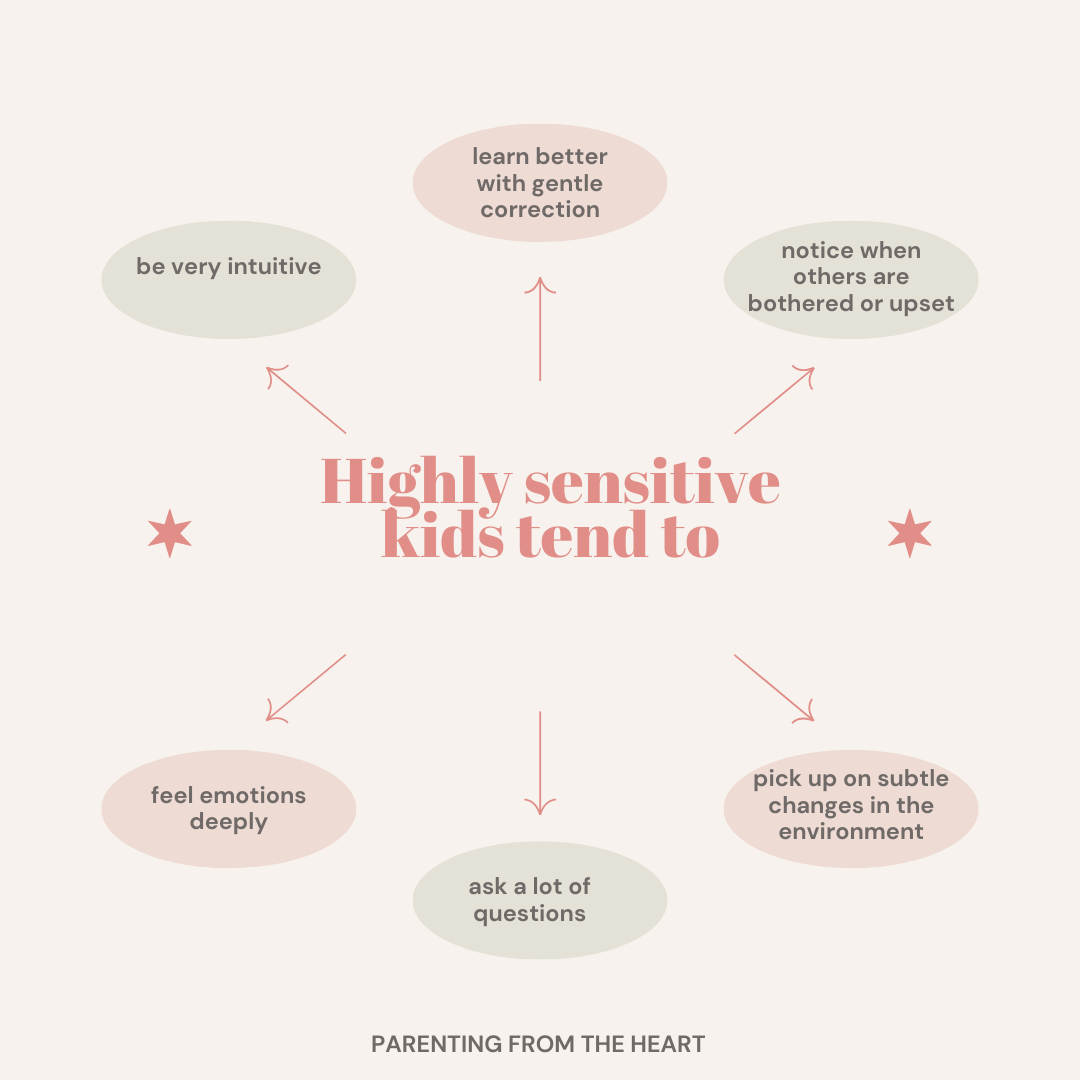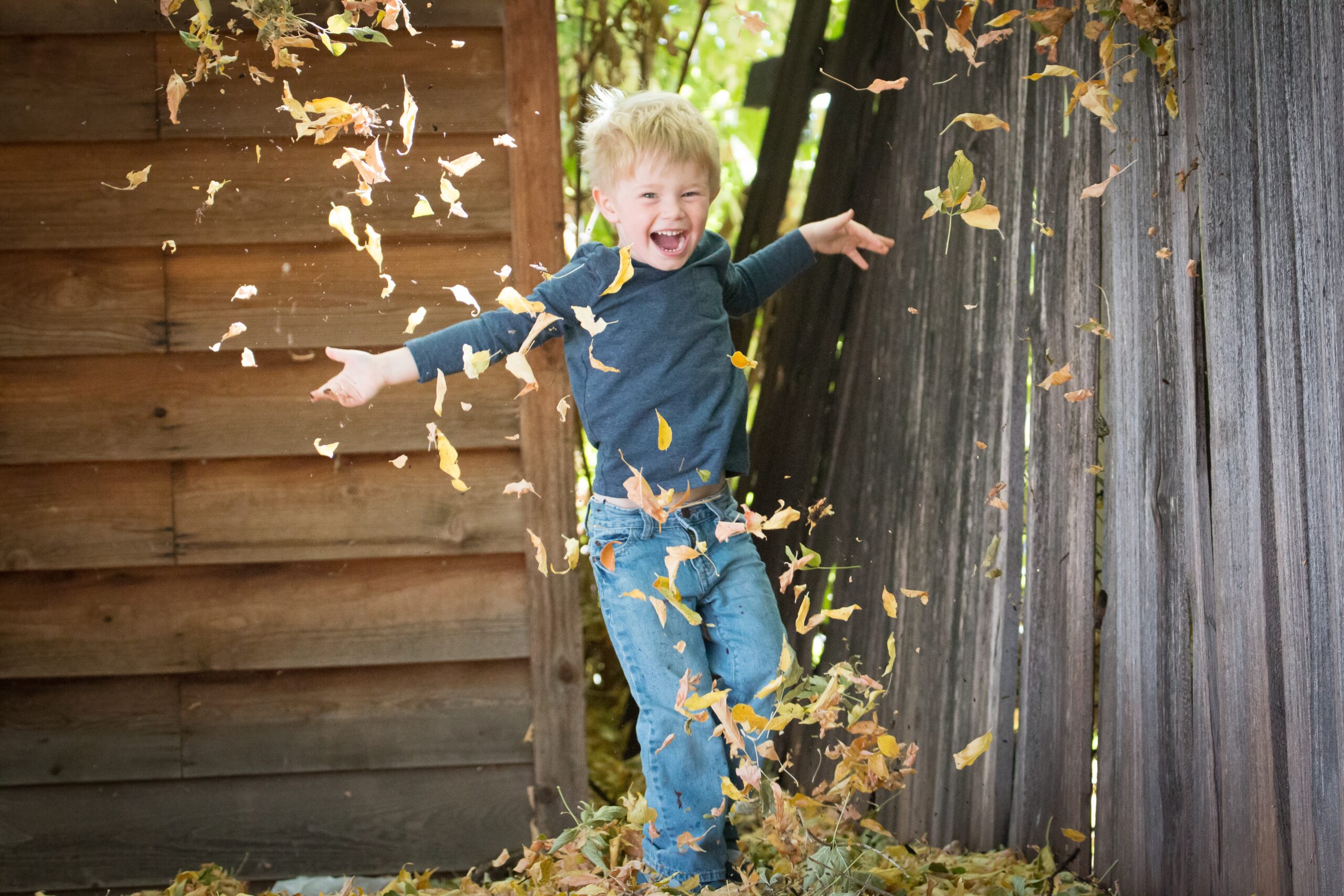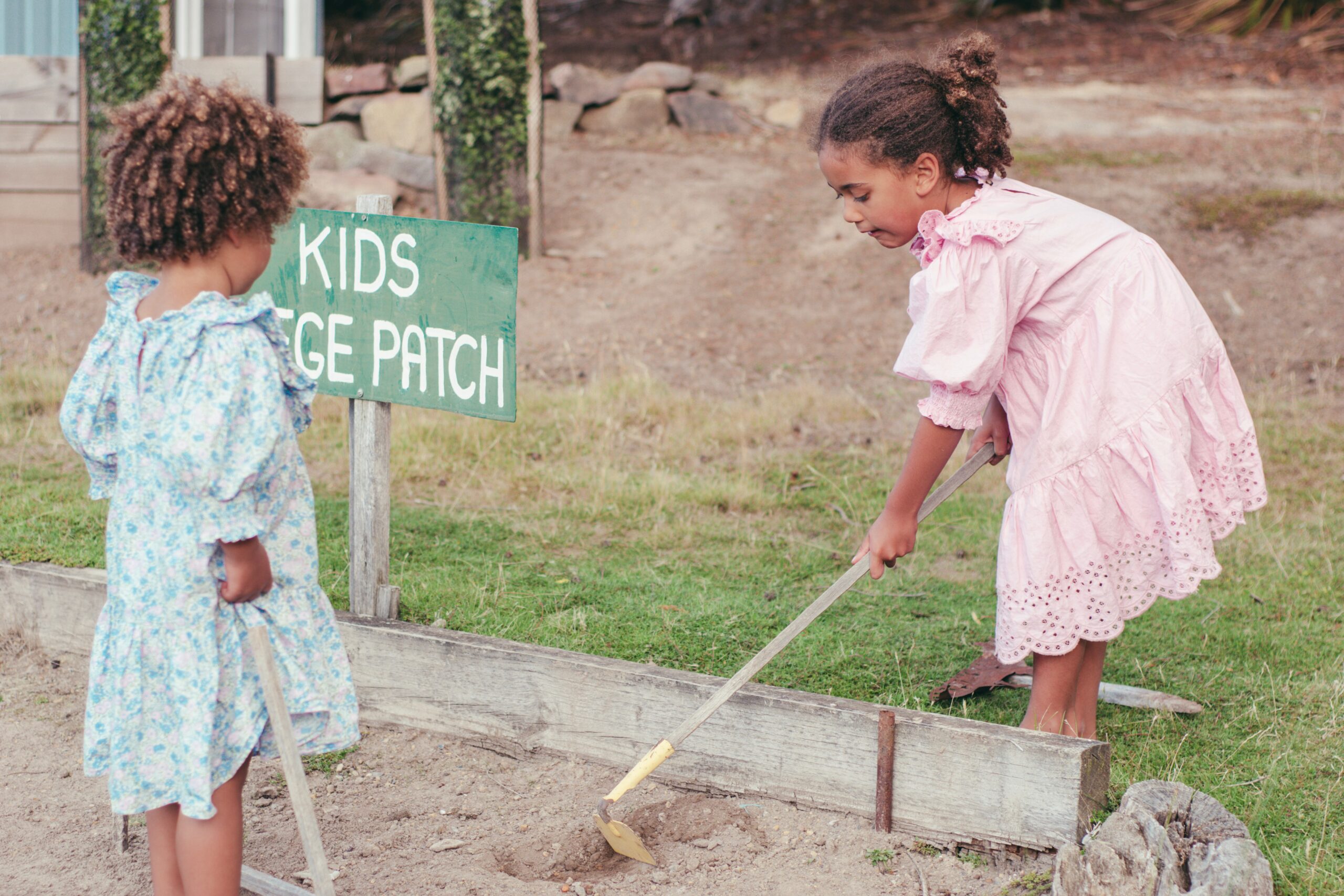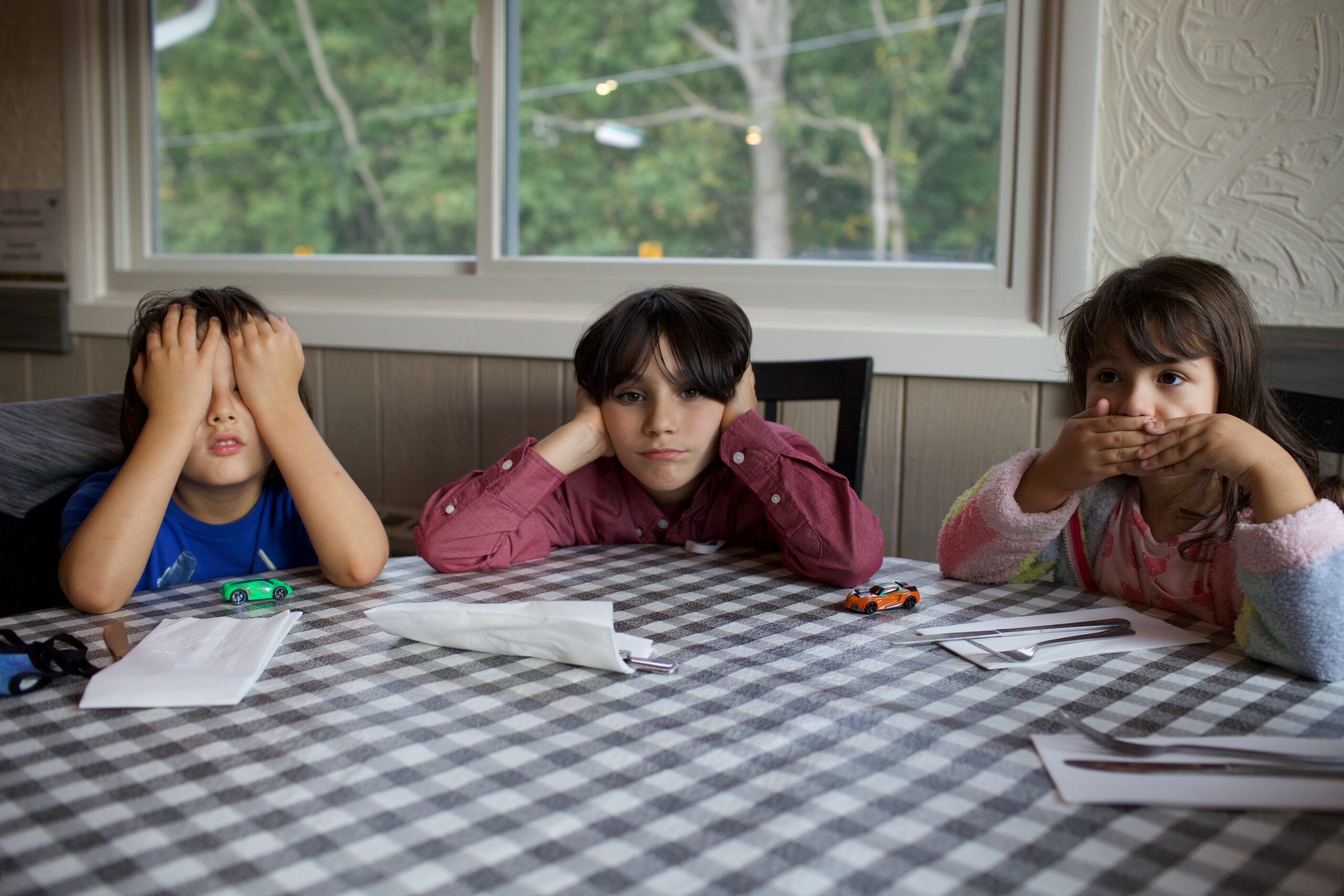Table of Contents
- How Do You Know You Have a Strong-Willed, Highly Sensitive Child?
- Balancing the Emotions of a Strong-Willed, Highly Sensitive Child
- Highly Sensitive Children Are Wired Differently
- Parenting a Strong-Willed, Highly Sensitive Child is Challenging.
- 5 Key Strategies Parenting Strategies for Strong-Willed, Highly Sensitive Children
- A Final Note on Sensitive and Strong-Willed Children
Parenting a strong-willed, highly sensitive child is challenging. We want to preserve their spirit while effectively parenting them. This is how to work with your child’s temperament, improve cooperation and celebrate who they are.
If you have a highly sensitive child, people may describe them as being an “old soul,” intuitive, and shy.
My daughter had traits of being a highly sensitive child as an infant, and I just thought she was difficult. Although she was a happy baby, she got overstimulated easily. Sleep was also a huge struggle for us. These were some of the first signs that she was a highly sensitive child.
Highly sensitive people’s brains work differently, and they have an amazing capacity for empathy. With the right parenting strategies, raising a child with a highly sensitive temperament doesn’t have to be a struggle.
How Do You Know You Have a Strong-Willed, Highly Sensitive Child?

Children who have strong-willed temperaments tend to:
- question authority and rules,
- be bright and persistent,
- frequently test authority figures (parents, babysitters, substitute teachers, extended family) to determine what the boundaries are,
- protest readily when expectations seem unfair,
- carry arguments on for longer and farther than one would anticipate (3).
Highly sensitive kids tend to:

- be very intuitive,
- learn better with gentle correction rather than harsh punishment,
- notice when others are bothered or upset,
- feel emotions deeply,
- pick up on subtle changes in the environment
- ask a lot of questions,
- struggle with peer and sibling interactions when overwhelmed,
- have a victim mindset,
- be very sensitive to pain.
You can take the Highly Sensitive Child test, developed by Dr. Elaine Aron, here.
Highly sensitive kids need the right tools to thrive in daily life. We want to preserve their spirit while helping to build confidence and provide them with effective coping mechanisms. Not all hs children struggle with the same things, and sensitivity can present differently based on your child’s temperament.
Balancing the Emotions of a Strong-Willed, Highly Sensitive Child
My child’s first day of preschool was another clue that she was going to be a highly sensitive person with a strong will.
She had her backpack ready days before the first day of school. Once she was packed, she was furious she couldn’t go to school immediately. When the first day of school came, she was so excited. But that excitement was short-lived.
In the classroom, her whirlwind of excitement came to a screeching halt as she saw another girl crying. Her eyes welled with tears as my confident little girl was hit by the enormity of the situation. Not only did she feel sad because someone else was upset, but I could see how the bright lights and noise levels were affecting her.
My daughter didn’t know how to make sense of her conflicting emotions. She had been so excited about school, but suddenly everything felt overwhelming and scary.
Highly Sensitive Children Are Wired Differently
Like many highly sensitive children, my daughter was acutely aware of her environment and the emotions of those around her. Your highly sensitive child actually has a brain that is wired differently to other kids.
Sensory Processing Sensitivity

Sensory processing sensitivity, according to Dr. Elaine Aron, occurs in 15-20% of people and can be challenging for parents to deal with. Highly sensitive kids may have a low tolerance to strong smells, experience intense emotions, and struggle with certain foods and loud sounds. Highly sensitive children are also at risk for other mental health challenges if not properly supported.
They can be overwhelmed by sensory input, which may affect your child’s behavior. Their nervous system gets activated quickly, leading to emotional distress. Highly sensitive children take time to process things, and they feel things much deeper than other kids.
Sensory Processing Sensitivity is a personality trait and is inheritable. That means you may have multiple highly sensitive kids who can be overwhelmed by sensory input. This can also influence peer and sibling interactions.
Highly sensitive children tend to move into a stressed fight-or-flight state quickly due to sensory overload. Because they feel emotions more vividly than other kids, they react from their emotional limbic system more often than their rational prefrontal cortex. But, the mirror neurons in the brains of highly sensitive children are more active, meaning they have a greater capacity for empathy.
Because your highly sensitive child is more prone to anxiety and self-consciousness, they may be more likely to experience other mental health challenges as they grow.
Sensory Processing Disorder

Sensory processing disorder isn’t based on temperament like sensory processing sensitivity. Although they have similar traits, sensory processing sensitivity is situational, but sensory processing disorder reactions have a different root cause.
Highly sensitive kids with SPD have the same reaction to stimuli regardless of the situation.
Parenting a Strong-Willed, Highly Sensitive Child is Challenging.
There is no autopilot for parenting kids with strong wills and high sensitivity. This is because strong-willed children take nothing at face value. They are forever trying to determine what the boundaries are and will always try to negotiate. Then, because these kiddos are sensitive, they are acutely aware of changes in their environment and have big hearts and equally big reactions.
But it’s not all bad! In fact, it’s pretty amazing.
Strong-willed children with high sensitivity are naturally equipped with some of the greatest predictors of lifelong success. For one, they are naturally tenacious. When a strong-willed child doesn’t get their way, they brainstorm, negotiate, and press the issue. They are also more intrinsically motivated, and these amazing kids will passionately work towards their goals.
In addition to being gritty, these children are more inclined to be leaders and stand up for what’s right. Laura Markham, a clinical psychologist at Columbia University explains,
[Strong-willed children] are usually self-motivated and inner-directed, and often grow into leaders as adults. They are more impervious to peer pressure and go after what they want with more gusto. They want to “learn things for themselves rather than accepting what others say, so they test the limits over and over,” and this relates to relationships as well. Such discernment involves not only when they cut their hair, eat vegetables, or choose to wear a coat, but also in whom they decide to trust and in whom they choose to follow or who they allow themselves to be influenced by.
Finally, emotionally intelligent people tend to have better job performance (1). And highly sensitive people tend to be empathetic, smart, and conscientious (2).
Related reading: Parenting a Strong-Willed Child? These are the best books to increase cooperation
5 Key Strategies Parenting Strategies for Strong-Willed, Highly Sensitive Children
Frame Your Child’s Behavior

How parents frame their child’s behavior tends to determine how they respond to it. Parents who approach their highly sensitive children with more understanding and compassion (while still making sure they follow the rules) have children who tend to cooperate more and show lower levels of aggression and anxiety.
Understanding your child is strong-willed and sensitive gives you context for why your child may be more headstrong and/or emotional. When you recognize the emotions behind the actions, you can help your child gain control of their emotions and stop them from having a victim mindset.
Collaborate and Cooperate

Call a family meeting with all family members and discuss problems as well as goals. Prompt your children to talk about what rules they think are reasonable, as well as how they should be reminded when mistakes are made. In this situation, you are still the parent, and you are guiding the discussion while collaborating to accomplish peace and cooperation in your household. It’s also empowering for your highly sensitive child to be involved in making decisions.
Setting rules and expectations before an event or scenario (e.g., going to a restaurant, visiting a museum, or going over to someone’s house for dinner) will also increase cooperation and make discipline easier if needed. When all family members contribute, it helps build confidence and healthy relationships.
Set Realistic Expectations

Give your child a heads-up before engaging in a situation they will find challenging. Highly sensitive kids struggle with new experiences, so giving them information about what to expect can help manage their anxiety.
This will make it so much easier for them to be resilient when they feel challenged. Daily life is full of unexpected challenges, and your child with high sensitivity needs coping mechanisms to help them gain control when they are overwhelmed by sensory input.
Make Boundaries Firm and Discipline Gentle
Strong-willed children need to know what rules are non-negotiable. This minimizes conflict and also facilitates confidence in a child. Research shows that children with high sensitivity feel the most vulnerable when boundaries aren’t clear (3). Equally, discipline must be calm and gentle. Studies on highly sensitive children show that they hold themselves highly accountable for their mistakes (4).
In cases of misbehavior, the best approach is a subtle reminder or, in more extreme cases, a timeout where you’re with your child. Positive discipline fosters healthy relationships and equips highly sensitive children with the tools they need to deal with overwhelming sensory input.
Be Transparent

Most people may mistakenly think your child is intentionally being too sensitive or strong-willed. When people don’t understand sensory processing sensitivity, they can make highly sensitive children feel self-conscious. Chat with your child’s teacher so they can be intentional in the classroom.
By giving context to who your highly sensitive child is, the adults in your child’s life will be better equipped to take care of and guide him.
A Final Note on Sensitive and Strong-Willed Children
Strong-willed, highly sensitive children require patience and consideration. They aren’t easy to raise, but their high sensitivity gives them the innate capacity to become compassionate and meaningful leaders.
The key is to work with their high sensitivity and see it as the superpower it is. To do so, the adults in their lives must work with them instead of against them, be clear with their expectations but gentle with their discipline, and act as their advocate where appropriate.
In doing so, adults are able to guide the child in a way that celebrates who she is. This then gives the child to truly become the person she they were meant to be.
Other articles and reading you may find helpful
Parenting a Strong-Willed Child: 10 surefire tips for effective discipline
Front-Loading, Redirection & Connection: 3 powerful strategies for your strong-willed toddler
How to Empower and Celebrate Your Sensitive Son
Children’s Books That Will Make Your Strong-Willed Child Laugh







![Parenting a strong-willed, sensitive child is challenging. We want to preserve their spirit while effectively parenting them. This is how to work with your child's temperament and improve cooperation. My first strong-willed, sensitive child was my daughter. Shortly after she was born, many described my baby girl as an old soul. As an infant, her eyes were wide with curiosity. With a serious expression on her face, it was as if she was analyzing everything. As an infant, she was a happy baby. However, she got overstimulated easily and was quick to let me know when I needed to take her out of a crowded room. Her first day of preschool was another example of how her personality plays out. She had her backpack ready days before the first day of school. Once she was packed, she was furious she couldn't go to school that instant. When the first day of school came, she lept with joy. When we pulled into the parking lot, she told me to wait in the car and let her walk in on her own. Considering the fact she was three and not thirteen, the answer to that demand has a hard no. I did my best to keep with my two-year-old son on my hip as my little girl burst through the rusty red school doors. In the classroom, her whirlwind of excitement came to a screeching halt as she saw another girl crying. My daughter's desire to leave me in the dust tapered. Her big brown eyes got even darker as the empathy she felt for the girl washed over her. "She's sad, Mama." My daughter didn't know how to reconcile the dissonant emotions. She was excited to leave me while another child was brokenhearted that her mom had left. Thankfully, this situation acted as an opportunity for both girls to make a friend before class started. (They felt the cloakroom holding hands and were best friends for the rest of the school year.) This example of the juxtaposition of my daughter's strong-will and sensitivity is one of many. But my son is also highly sensitive and willful. Because of this, our days are punctuated by headstrong and emotional reactions. For example, when a soccer game got too rough, my son made his way to the sidelines, crossed his arms, and refused to get back on the field. And, the other day, decided to set up a lemonade stand, they went toe-to-toe over whether or not a lemonade stand can carry drinks other than lemonade. They argued about the best place to set up the stand. And, when no one came to their sale, they were both crestfallen. Related reading: Parenting a Strong-Willed Child? These are the best books to increase cooperation Parenting a strong-willed, sensitive child is challenging. If you can relate to examples like these, chances are you find parenting your child to be dynamic and, at times, exhausting. There is no autopilot for parenting these precocious and emotional souls. This is because strong-willed children take nothing at face value. They are forever trying to determine what the boundaries are and will always try to negotiate. Furthermore, these children are acutely aware of changes in their environment, have big hearts, and equally big emotional reactions. So often, children of this nature pick battles or are devastated over things like: being served big carrots you cut for them instead of mini carrots, you suggesting they wear a pair of pants that "feel funny," a change in plans, like having to wait to go to the aquarium because the baby hasn't woken from his nap. The good news. Strong-willed, sensitive children are naturally equipped with some of the greatest predictors of lifelong success. For one, they are naturally tenacious. When a strong-willed child doesn't get her way, she brainstorms, negotiates, and presses the issue. For instance, when their lemonade stand failed, my children eventually decided to add more items, a price list, and find a higher traffic location (they set up right near a construction site.) As a result, they both came home happy, clenching about $3 in change each. In addition to grit, these children are more inclined to be leaders and stand up for what's right. Laura Markham, clinical psychologist at Columbia University explains, [Strong-willed children] are usually self-motivated and inner-directed, and often grow into leaders as adults. They are more impervious to peer pressure and go after what they want with more gusto. They want to “learn things for themselves rather than accepting what others say, so they test the limits over and over,” and this relates to relationships as well. Such discernment involves not only when they cut their hair, eat vegetables, or choose to wear a coat, but also in whom they decide to trust and in whom they choose to follow or who they allow themselves to be influenced by. Finally, emotionally intelligent people tend to have better job performance (1). And, highly sensitive people tend to be empathetic, smart, and contentious (2). How do you know you have a strong-willed, sensitive child? Children who have strong-willed temperaments tend to: be prone to power struggles, question authority and rules, be bright and persistent, frequently test authority figures (parents, babysitters, substitute teachers, extended family) to see determine what the boundaries are, protest readily when expectations seem unfair, carry arguments on for longer and farther than one would anticipate (3). Children who are highly sensitive tend to: be very intuitive, learn better with gentle correction rather than harsh punishment, notice when others are bothered or upset, feel emotions deeply, picks up on subtle changes (such as the "slightest unusual odour") asks a lot of questions, is very sensitive to pain. You can take the Highly Sensitive Child test, developed based Dr Elaine Aron's research, here. As an Amazon associate, I earn from qualifying purchases. 5 key strategies that make parenting a strong-willed, sensitive child easier. Frame your child's behaviour. By understanding your strong-willed, sensitive child, you have context for your child's behaviour and are better equipped to coach it. Work with your child's personality by establishing the family rules together. Call a family meeting and discuss problems as well as goals. Prompt your children to talk about what rules they think are reasonable as well as how they should be reminded when mistakes are made. In this situation, you are still the parent and you are guiding the discussion while collaborating to accomplish peace and cooperation in your household. Frontload as often as possible. This means to look for every chance to give your child a heads-up before disappointment strikes, plans change, or the going gets tough. This will make it so much easier for her to be resilient when she feels challenged. Make boundaries firm and discipline gentle. Strong-willed children need to know what rules are non-negotiable. This minimizes power struggles and also facilitates confidence in a child. Research shows that sensitive children feel the most vulnerable when boundaries aren't clear (3). Equally, discipline must be calm and gentle. Studies on sensitive children show that they hold themselves highly accountable for their mistakes (4). In cases of misbehaviour, the best approach is a subtle reminder or in more extreme cases a timeout where you're with your child. When appropriate and with your child's permission, explain your child's temperament to others. Some may mistakenly think your child is intentionally being too sensitive or strong-willed. Others may not know how to make sense of your child's nature. By giving context to who your child is, the adults in your child's life will be better equipped to take care of and guide him. A final note on sensitive and strong-willed children Strong-willed, sensitive children require patience and consideration. They aren't easy to raise, but their temperament gives them the innate capacity to become compassionate and meaningful leaders. The key is to work with their personality while increasing cooperation. To do so, the adults in their lives must work with them instead of against them, be clear with their expectations but gentle with their discipline, and act as their advocate where appropriate. In doing so, adults are able to guide the child in a way that celebrates who she is. This then gives the child to truly become the person she is meant to be.](https://parentfromheart.com/wp-content/uploads/2016/03/strong-willed-child-upset.jpg)





I’ve read the full article in CMR and it is great. Dealing with your kids emotions is never easy. The important thing is that we listen to them, and let them know they have been heard. Lovely post Alana, keep up the great work.
Thank you so much!
Thank you! I cried reading the full article because it was so good to see written out what I think about in the moment. Evaluating isn’t something everyone does. Thank you for letting me feel that I am doing a good thing for my kids
Thank you so much for this post. My son is highly sensitive and it often presents many challenges. This has helped me to understand how I can help him. So many good tips, especially about trying to give him a heads up before disappointment strikes. Definitely going to try that one.
Hello Alana,
Thanks a million for an insightful article on positive parenting. This resonates so much with my 5 year old.boy, he is so adorable and helps me in so many ways. Just that I know the trick to handle him.
However, the online school many times leaves him with a emotional meltdown due to unfair situations, which the teacher doesn’t seem to understand.
However, so glad I found this. Because it gives me confidence that I am going the right way handling my child. Understanding their emotions doesn’t equate to pampering.
Lots of love to you and your beautiful souls. 🙂
Thank you for this article. Only recently have I come to realize that my daughter is a highly sensitive strong willed child. I was so concerned about her early on that I took every parenting course I could, I read every article on every type of child. But I have never read anything like this article. I have struggled with such a sense of failure as our relationship was and is so strained to this day. I was so willing to open my heart to anything I read that felt familiar to her temperament. All these years later I now understand and it feels like a curse for what I just didn’t know but now, some relief as I move forward with a better understanding and an open heart. Even though she is now in her 30’s I will continue to love her with a soft open heart and perhaps most importantly, forgive myself.